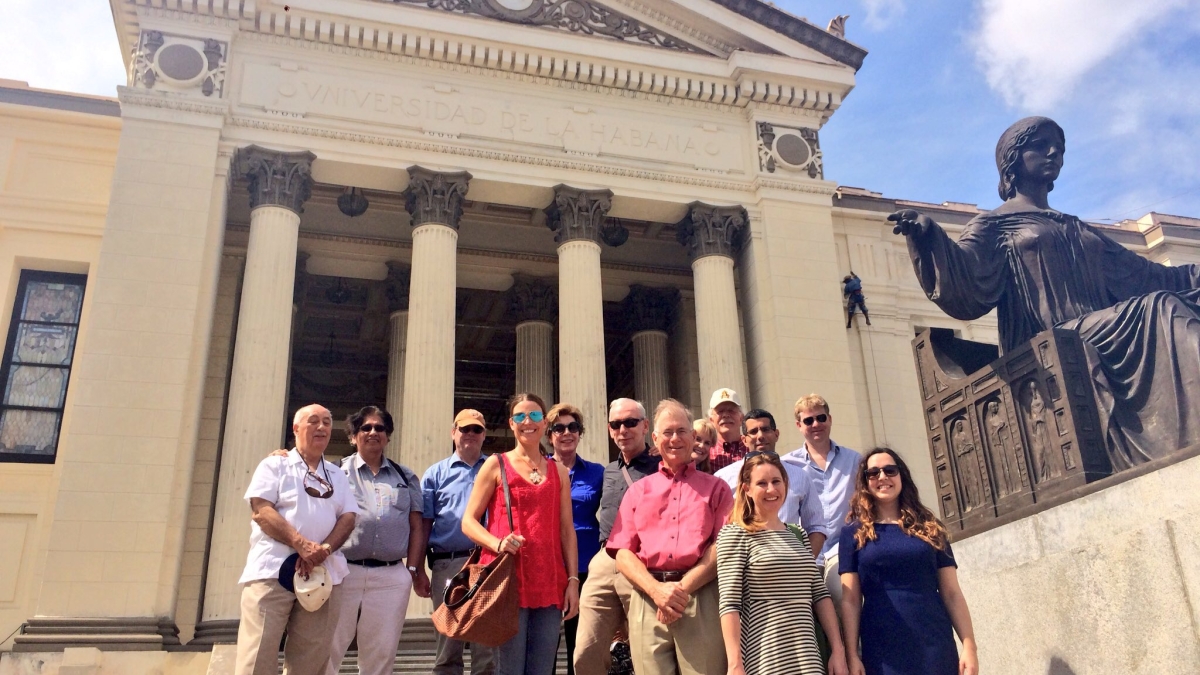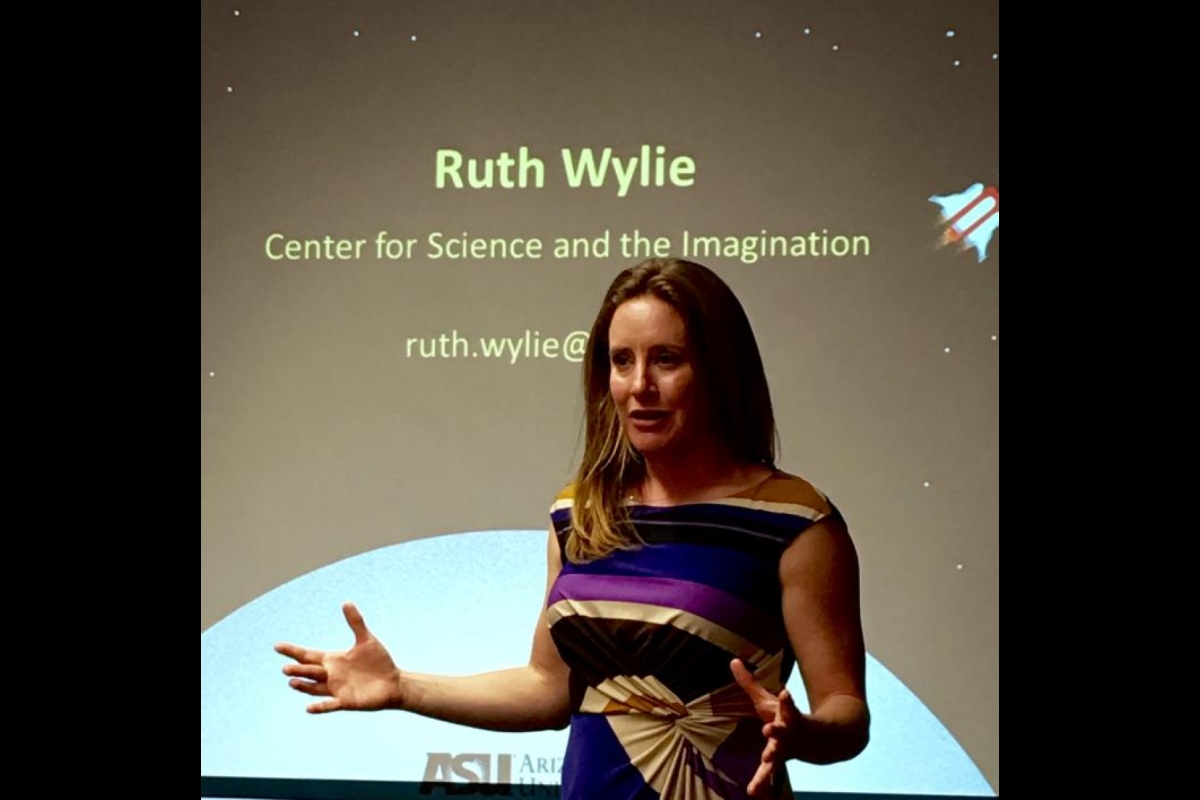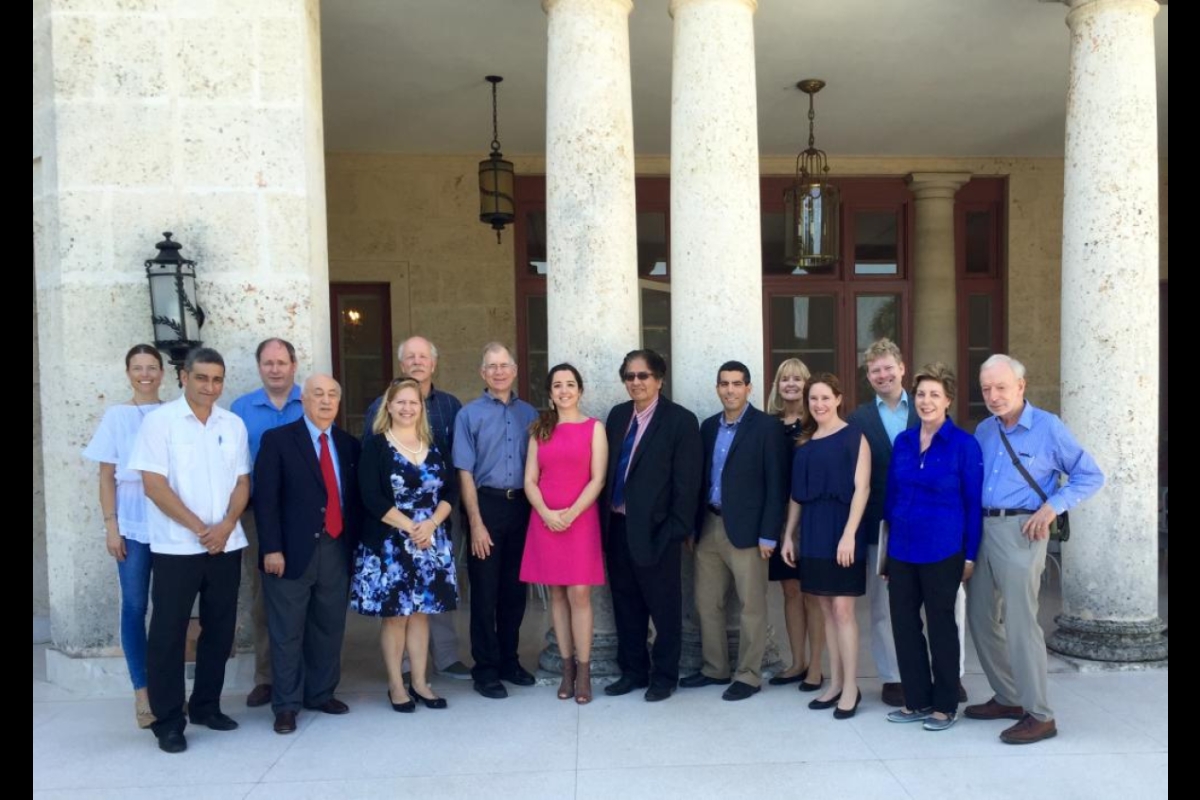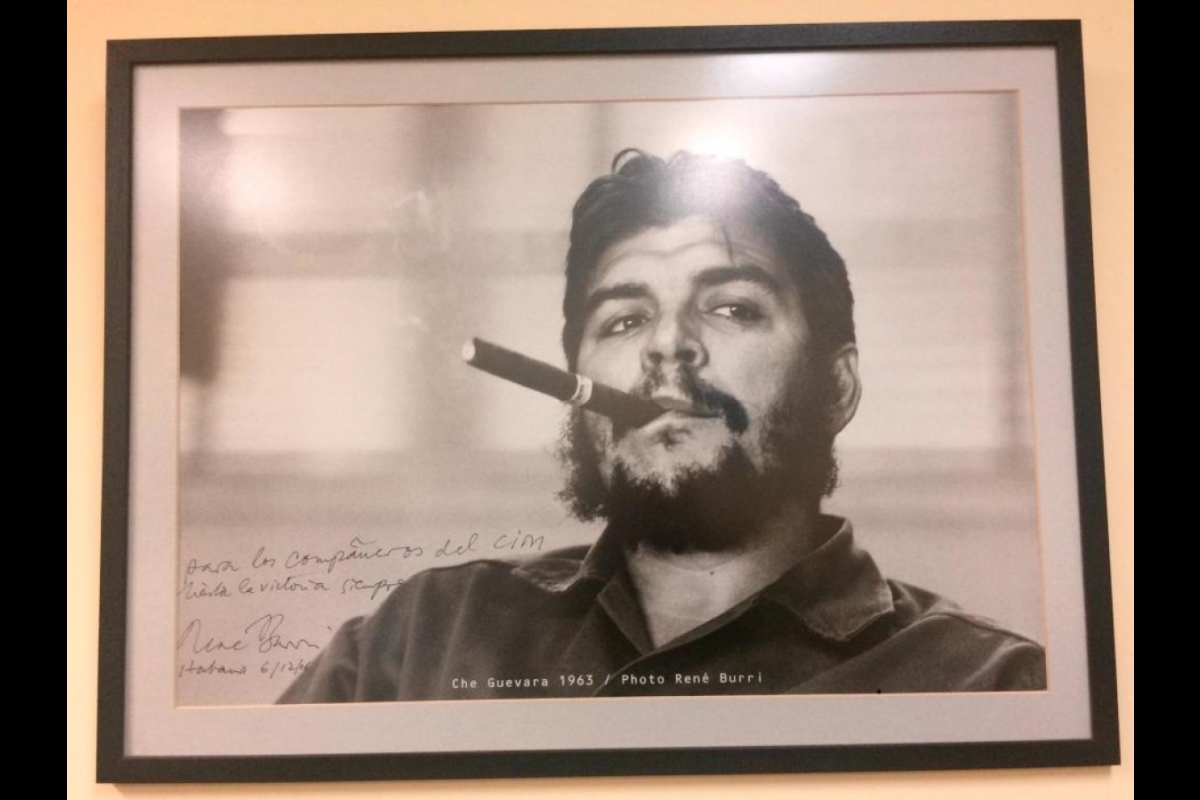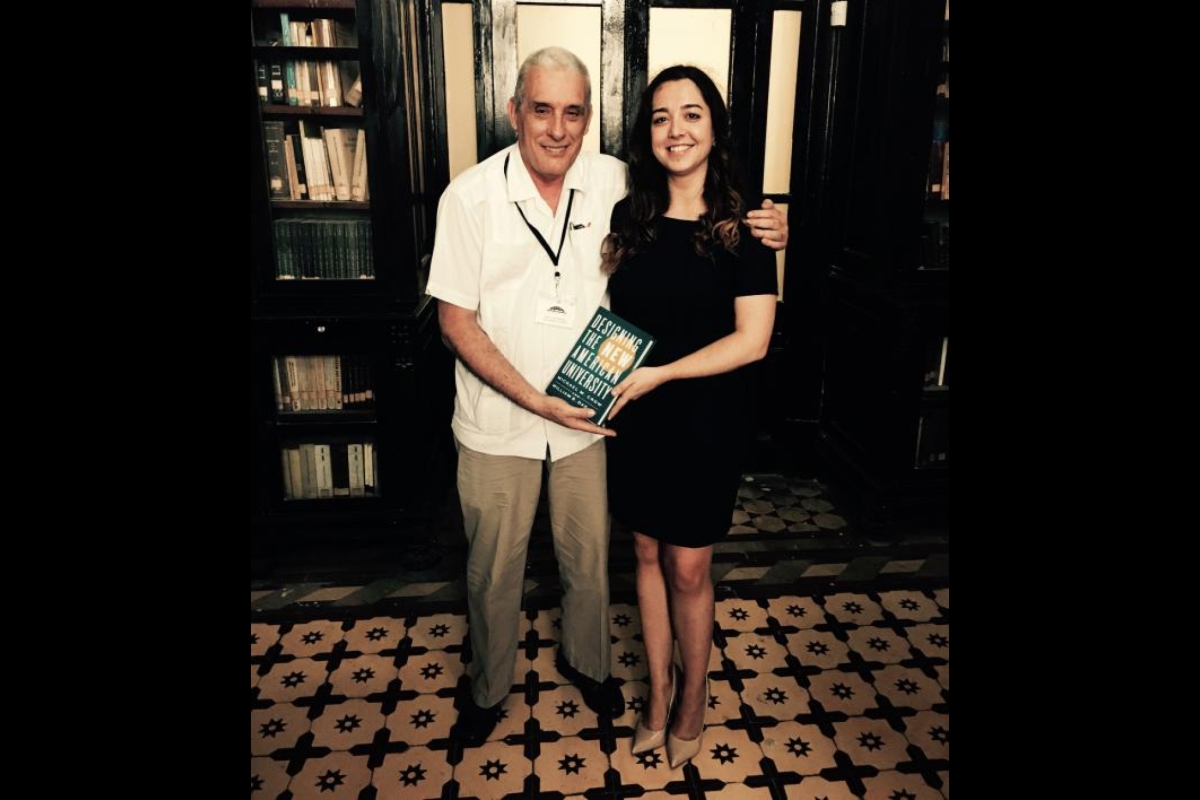President Barack Obama arrived Sunday afternoon in Cuba, the first visit of a sitting American presidentPresident Calvin Coolidge, the 30th president, took his first foreign trip in office to Cuba in January of 1928. Unlike President Obama, who took Air Force One, Coolidge arrived on a battleship. to that country in 88 years.
It's an historic trip, occasioned by Obama's major recalibration of American foreign policy toward the Communist island that sits a mere 90 miles from Florida. While there, the president will speak with Cuban President Raul Castro, with business leaders and political dissidents, and he'll take in an exhibition baseball game between Cuba's national team and Major League Baseball's Tampa Bay Rays.
Though restoring U.S.-Cuba diplomatic ties after decades of tension could be a rocky road, there are a number of positive signs. A team from ASU got to see some first hand.
A 12-person group of Arizona State University researchers spent six days in Cuba in early March, building relationships, demonstrating the university’s strengths in areas Cuban institutions are interested in, and showing ASU’s dedication to developing and sharing knowledge.
“It was very positive, very optimistic,” said Marga Gual Soler, who led the trip. “In only a year, I’ve seen so much advance in scientific relations between Cuba and the U.S. ... They are hopeful and inspired by the reopening of diplomatic relations.”
Unlike North Korea, Cuba is not isolated from the entire globe, said Mikhail Chester. Chinese cars on the street and Chinese consumer goods were testament to that.
“Cuba is not disconnected from the world,” said Chester, senior sustainability scientistMikhail Chester is also an assistant professor in the School of Sustainable Engineering and the Built Environment in ASU's Ira A. Fulton Schools of Engineering. in the Julie Ann Wrigley Global Institute of Sustainability. “It’s disconnected from the U.S.”
Delegates weren’t sure how they’d be received or how much progress they would make. Was it going to be a closed-doors situation?
“I wasn’t sure about speaking to different representatives to how open they would be to collaborate or not,” said David Iwaniec, assistant research professor in the Julie Ann Wrigley Global Institute of Sustainability. “The most unexpected thing for me was how open it was, how eager they were to share the type of work they’re doing. What they’re doing, and even starting to learn the needs they have.”
The biggest accomplishment was starting the process to bring Havana into the ASU-led investigation into how cities can survive and bounce back from extreme weather events.
Chester and Iwaniec are researchers from the Urban Resilience to Extreme Weather-Related Events Sustainability Research Network (UREx SRNUREx SRN is a unit of the Julie Ann Wrigley Global Institute of Sustainability.), a team of 50 researchers from 15 institutions led by ASU professors to investigate how cities can better endure storms like Joaquin, Sandy and Katrina.
They met with officials from the United Nations Development Programme, a small office in Havana in charge of resilience efforts for all of Cuba.
“We spent a long time talking about details about what we’re doing and how we’re doing it across our network of 10 cities,” Iwaniec said. “It really exceeded my expectations how fast we were able to gain trust.”
Cuba has issues with coastal and inland flooding, drought and hurricanes. Severely aging infrastructure is another problem.
“They’re dealing with urbanization,” Iwaniec said. “Rapid changes are happening — we heard that over and over again from people we talked to.”
The UN effort has focused on preparing Cuba with coordinating agencies and keeping communication lines open in times of disaster.
“Those efforts are great — that’s what we’d expect of most cities — that those plans are in development,” Chester said. “It was nice to see that they are doing this in Cuba proactively. ... They were pleased to hear about the things that were going on that might help them out.”
Cubans the delegation met on the trip really wanted to share information, said Soler, an assistant research professor at the School for the Future of Innovation in Society. She also manages science cooperation projects between Cuba and the U.S. for the Center for Science Diplomacy at the American Association for the Advancement of Science.
“Cuba has developed a very good warning system and response to tropical hurricanes, and this is something the U.S. can learn from,” Soler said. “It obviously benefits both countries to be communicating in response to disasters that hit both countries.”
Cuba’s knowledge of hurricanes and flooding could be a huge benefit to Miami and Puerto Rico.
“I see it as a potentially excellent partnership,” Chester said.
The team spent a significant amount of time with Sergio Pastrana, foreign secretary of the Academy of Sciences of Cuba, the gatekeeper between all Cuban science partnerships with foreign universities, deepening ties with ASU.
Given the political realities of Cuba and the uncertain state of bilateral relations, the delegation chalked up the trip as a success, with Cuba having as much to offer as the university.
“That is the most important point,” Soler said. “It is a mutual learning experience. It is based on mutual respect.”
More Law, journalism and politics
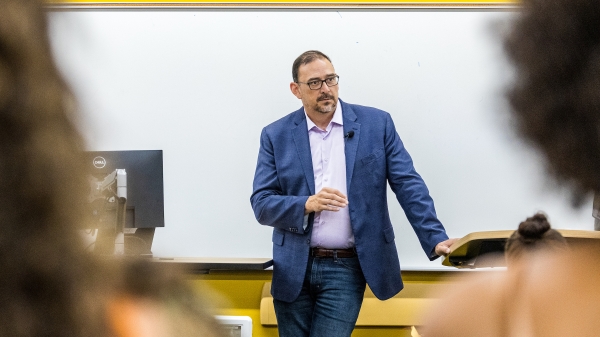
Arizona secretary of state encourages students to vote
Arizona Secretary of State Adrian Fontes looked right and left, taking in the more than 100 students who gathered to hear him speak in room 103 of Wilson Hall.He then told the students in the Intro…
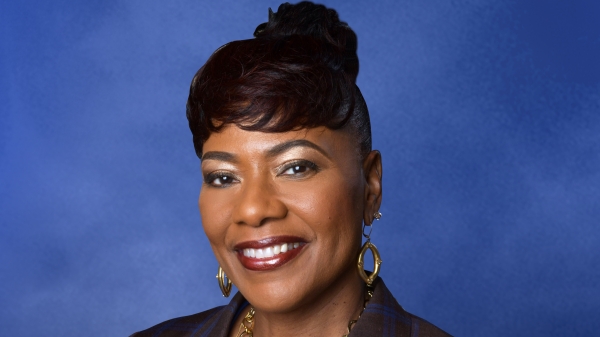
Peace advocate Bernice A. King to speak at ASU in October
Bernice A. King is committed to creating a more peaceful, just and humane world through nonviolent social change.“We cannot afford as normal the presence of injustice, inhumanity and violence,…
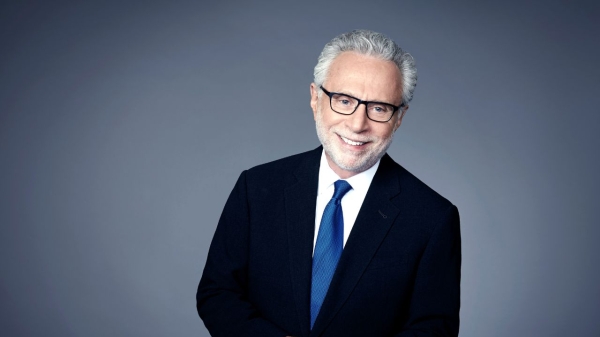
CNN’s Wolf Blitzer to receive 41st Walter Cronkite Award for Excellence in Journalism
Wolf Blitzer, the longtime CNN journalist and anchor of “The Situation Room With Wolf Blitzer,” will accept the 41st Walter Cronkite Award for Excellence in Journalism, Arizona State University has…
